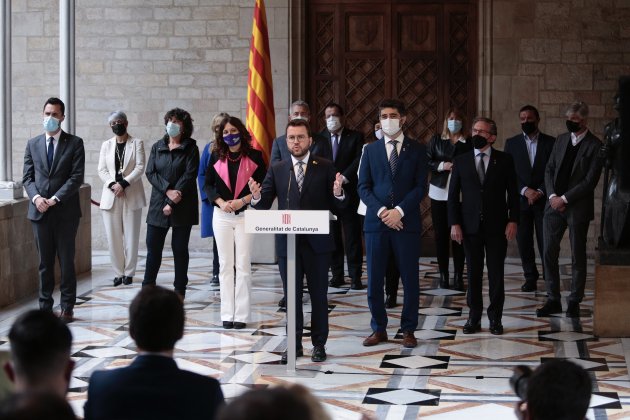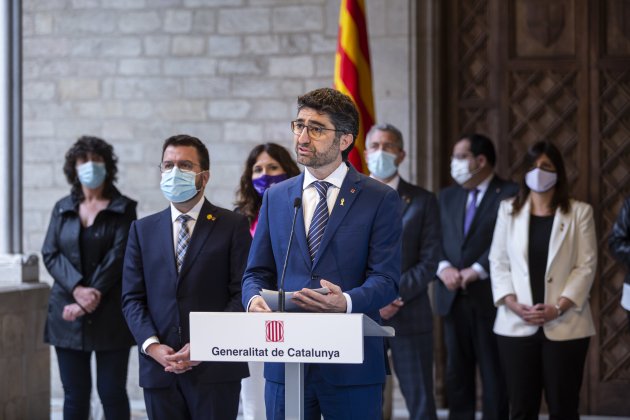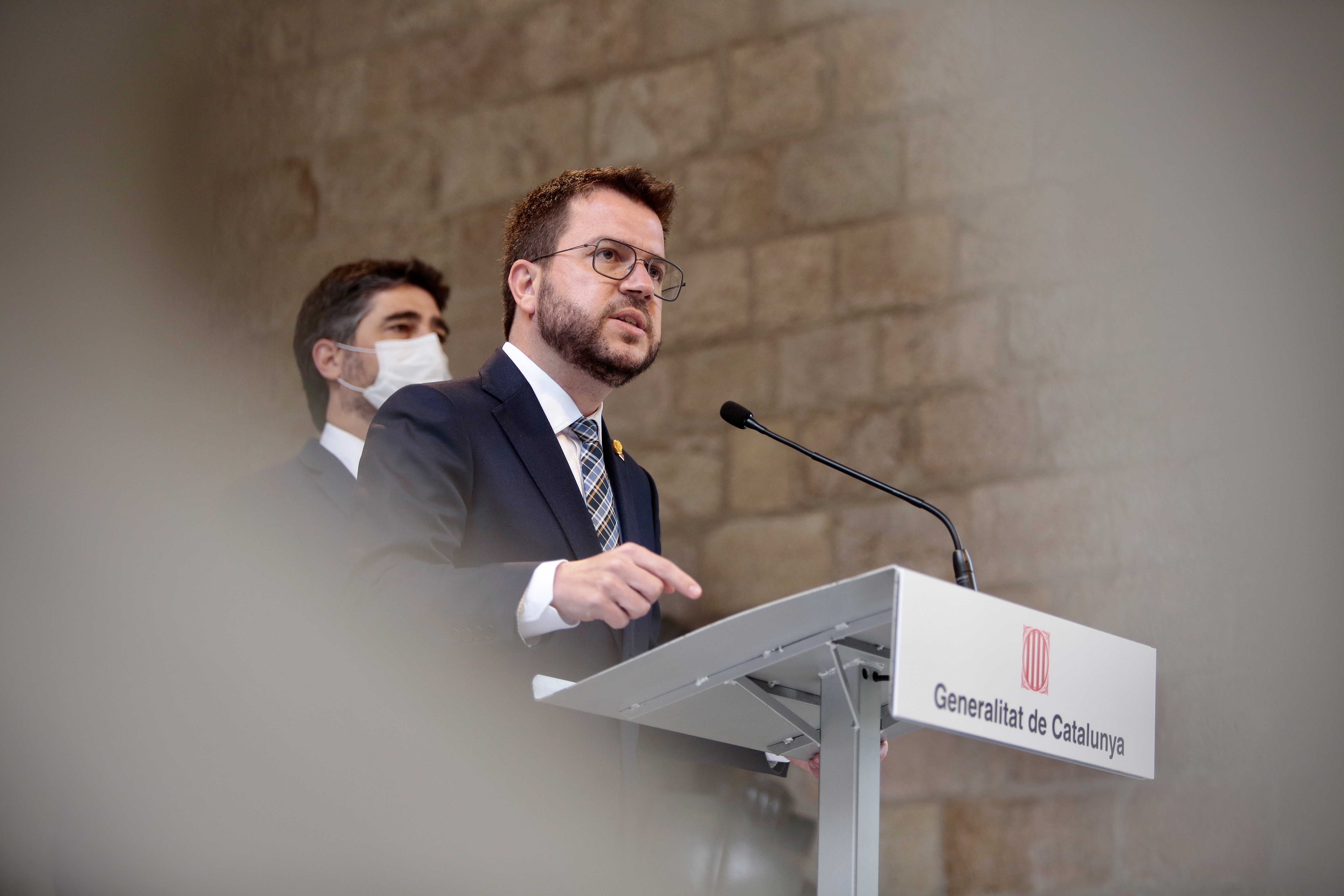Should the Catalan government break off relations with its Spanish counterparts after the cyberespionage revelations that targetted at least 65 pro-independence activists and politicians? This is probably one of the most frequently asked questions this Tuesday, the day after the scandal was uncovered. And the response from the government of Pere Aragonès has given rise to differing interpretations: relations have not been broken but trust has been "damaged", and to restore it, it is up to the Moncloa palace in Madrid to proactively repair the relationship. This is what the president of the Generalitat, Pere Aragonès, said in a speech after a meeting accompanied by all members of his coalition government at the Generalitat palace: "Trust in the Spanish government is at minimal levels, it is really hard to trust anyone when everything points to the fact that they've been spying on you."
Pere Aragonès: "It is up to the Spanish government to assume the responsibility to restore confidence with Catalonia"
So the government considers that until the truth about the CatalanGate actions is clarified and known, relations will not be normalized: "The ball is in the court of the Spanish state," was how Aragonès put it, calling for the relationship to be repaired with transparency and accountability, and also announcing that he has requested a meeting with Pedro Sánchez to clarify "face to face" what happened and to find out how much the Spanish PM knew. But does this mean that the dialogue table has been frozen or that he will not attend the conference of autonomous presidents? The answer is not very clear. Aragonès acknowledged that it is now very difficult to have the "conditions to make progress" and that the dialogue table "has been affected", although it was already without a date before the controversy broke out. And as for the conference of presidents, he recalled that, in general, he no longer attends, except when issues such as the pandemic or the war in Ukraine have been addressed.

What, then, does the Catalan president think it will take to restore confidence? According to Aragonès, the Spanish government must initiate an internal commission of inquiry on the issue, as soon as possible and with independent supervision, facilitating the work of this body to clarify responsibilities and ensure that the consequences are assumed after the conclusions of the investigation.
Beyond the enumeration of conditions and the description of the state of the relationship, Aragonès pointed out that CatalanGate is an "authentic state operation against representatives of democratic institutions", which is why he called for every democrat to rebel and demand maximum transparency and accountability. He also stated that the government will offer full support and legal assistance to the victims of espionage who are public workers or were when they were spied on.
Puigneró: "Intolerable attack"
The vice president of the Catalan government, Jordi Puigneró (Junts), also spoke, stating that espionage is an "intolerable attack on democracy", which shows that "Spain is no longer a full democracy", and that it is on its way to being a democracy that does not meet the minimum required European standards. He also insisted that the government will not normalize relations "with a repressive state" that invades the privacy of independence supporters, and explained that he will also support an international investigation: "There are culprits and there must be responsibilities." The vice president also said that according to initial estimates, more than 20 million euros were spent to spy on the independence movement. Both the cybersecurity agency and the Mossos d'Esquadra will launch investigation to find out "who did it," he added.

Response in Brussels
This was the institutional response in Catalonia, while earlier today there was a unitary response from the Catalan independence movement in Brussels, with the participation of Junts president Carles Puigdemont, ERC president Oriol Junqueras, and CUP deputy Carles Riera, in addition to the presidents of the ANC, Elisenda Paluzie, and Òmnium Cultural, Xavier Antich. The response was clear and unitary: the CatalanGate issue will be taken to the European Union, the UN and the courts of Spain, France, Germany, Belgium, Switzerland and Luxembourg.
What they don't agree on is how to deal with the Spanish state. Junqueras once again pledged to maintain the "flag of dialogue", but assured that ERC will be strict in its demands on the Spanish government and will ask for explanations. For Puigdemont, however, things cannot continue as they have been up till now, and for this reason he demanded that this political espionage has "political consequences". Carles Riera of the CUP also called on Pedro Sánchez to take responsibility for the espionage, but an even tougher demand came from CUP deputy Xavier Pellicer at the Catalan Parliament, who demanded that government-to-government relations between Barcelona and Madrid be frozen.
And what did the Spanish executive say? The state simply belittled the espionage issue. After 24 hours of silence, minister-spokesperson Isabel Rodríguez assured that the government has nothing to hide and that the executive will collaborate with justice if necessary to clarify everything. The Catalan Socialists, for their part, have closed ranks with their parent party and echoed the statement that Spain "is a state governed by the rule of law that respects fundamental rights".

